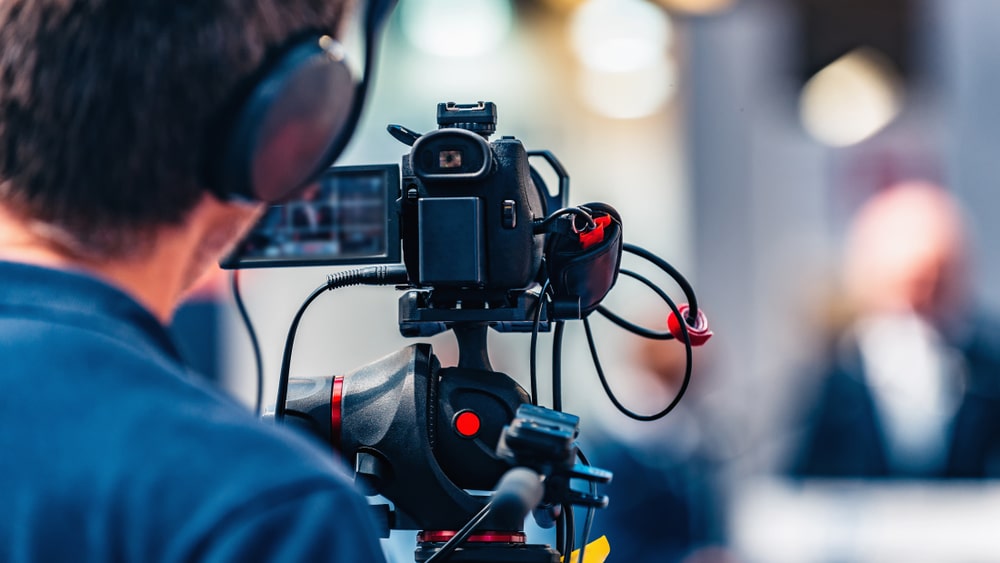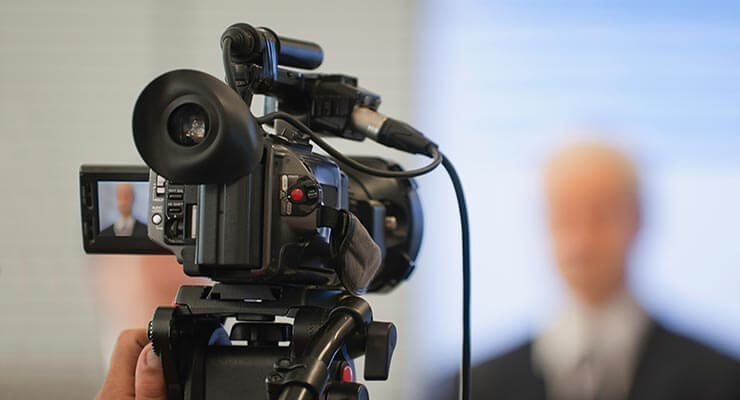The Role of Legal Videography in Depositions and Tests
Lawful videography has become a crucial tool in both depositions and trials, supplying a complex method to documenting witness statements. By recording not only the spoken word however likewise the nuances of non-verbal interaction, this tool enhances the reputation of testaments and preserves vital proof for future proceedings. As attorneys progressively acknowledge its worth, it motivates a much deeper exam of how these visual records can influence juror understandings and test end results. What implications might these developments hold for the future of legal practice?
Relevance of Lawful Videography
Lawful videography plays a crucial function in the documents and discussion of depositions and tests. This specific field combines technical skills with legal understanding to produce a trustworthy record of procedures that can substantially affect situation results. The visual aspect of legal videography enhances the understanding of witness testament, permitting jurors and courts to observe not only the spoken words yet additionally the behavior, emotions, and body language of the witnesses.

The relevance of legal videography extends beyond the court room; it likewise plays a vital function in preserving evidence for future reference, whether for allures or more lawful action. As such, its assimilation right into the legal procedure is necessary for guaranteeing a fair and precise representation of the facts, ultimately adding to the pursuit of justice.

Process of Legal Videography
While catching the subtleties of depositions and trials, the process of legal videography includes numerous vital actions that make certain top notch, precise recordings. An expert lawful videographer prepares by evaluating the case products and understanding the details needs of the deposition or test. This prep work consists of familiarizing themselves with the individuals and the context, which helps in capturing significant information.
On the day of the recording, the videographer establishes the necessary devices, which generally consists of high-definition cams, microphones, and proper lights. Guaranteeing optimal angles and sound quality is critical, as it straight influences the effectiveness of the recording. The videographer interacts with lawyers and individuals to develop methods, making sure that everybody comprehends the recording process.
During the deposition or trial, the videographer carefully tape-records the procedures, paying very close attention to both verbal and non-verbal hints. legal videography. This includes catching the temperament and reactions of witnesses and attorneys. After the session concludes, the videographer might modify the video footage for clearness and compliance with legal standards, creating a final product that accurately mirrors the procedures for future recommendation and use in lawful contexts
Benefits in Depositions
The unification of videography in depositions offers various advantages that boost the total procedure of gathering evidence. One key advantage is the capability to catch witness testimonies with aesthetic and auditory fidelity, providing an extra precise representation of the witness's behavior, tone, here are the findings and body language. This multidimensional approach permits attorneys and courts to evaluate trustworthiness better than traditional written transcripts alone.
Furthermore, videographed depositions work as a powerful tool for preserving testimony. Must a witness ended up being not available for test, their tape-recorded deposition can be played in court, making sure that their proof stays accessible and pertinent. This element considerably lowers the danger of losing vital original site info that could impact situation results.
Furthermore, using legal videography promotes much better preparation for lawyers. Examining video clip footage enables legal teams to assess and fine-tune their methods, identifying strengths and weaknesses in their instances. This primary advantage can result in more compelling presentations in court.
Lastly, videography enhances the overall expertise of the deposition process, instilling confidence in clients pertaining to the thoroughness of their legal representation. By leveraging technology, legal specialists can dramatically enhance the effectiveness of depositions.
Influence on Trials
In numerous tests, the assimilation of videography can substantially influence the discussion of proof and the jury's assumption. Legal videography catches witness testaments and crucial proof in a vibrant style, enabling jurors to involve with the product on several degrees. This aesthetic element improves the storytelling facet of a test, supplying context and emotional vibration that traditional text-based proof may do not have.
Furthermore, video clip recordings can offer as powerful tools for impeachment throughout cross-examination. When inconsistencies develop between a witness's prior statements and their court testament, video clip proof supplies an objective recommendation that can guide jurors' viewpoints. This immediacy and clearness can strengthen the integrity of a party's story while all at once weakening opposing arguments.
In addition, making use of videography can aid simplify complex info, making it extra obtainable to jurors who may struggle to realize elaborate details presented entirely with spoken testament. By combining visuals with auditory information, legal videography can improve retention and understanding, ultimately influencing the court's decision-making process. The impact of videography in tests extends past simple looks; it plays a vital role in shaping the lawful landscape and end results.
Future Trends in Legal Videography
As we look toward the future of lawful videography, a number of emerging trends promise to improve its duty within the court room. One substantial trend is the integration of expert system (AI) in video evaluation and modifying - legal videography. AI can improve the procedure visit of determining essential minutes in taped depositions, permitting attorneys to swiftly access relevant material, thereby improving performance in situation preparation
In addition, the rise of virtual fact (VR) and enhanced truth (AR) innovations is expected to transform exactly how jurors experience proof. By immersing jurors in a substitute atmosphere, these innovations can provide a more extensive understanding of complicated scenarios, resulting in more educated deliberations.

Moreover, the enhancing demand for remote depositions, sped up by the COVID-19 pandemic, will likely proceed. Legal videographers will certainly require to adapt to new software program and systems to make sure high-grade recordings in online settings.
Lastly, the expanding focus on data protection will require more stringent protocols for storing and sharing video clip evidence. As the lawful landscape advances, legal videographers must remain abreast of these trends to preserve their significance and effectiveness in the judicial process.

Final Thought
In summary, lawful videography serves a critical feature in the judicial procedure, boosting the honesty of depositions and trials. By catching the subtleties of witness statements, this tool not only protects important proof but additionally aids in offering information successfully to jurors. The relevance of aesthetic documentation in assessing credibility and assisting in interrogation can not be overemphasized. As modern technology remains to develop, legal videography is poised to more change its role within the lawful landscape.